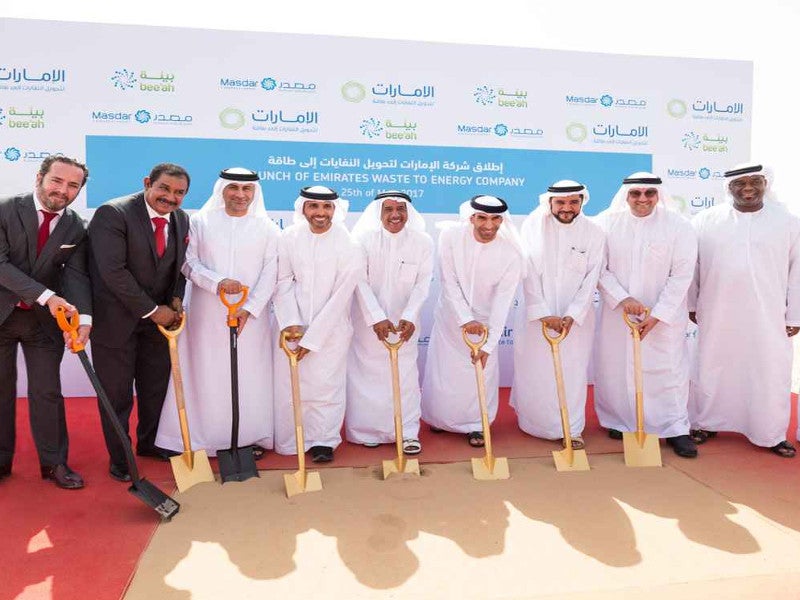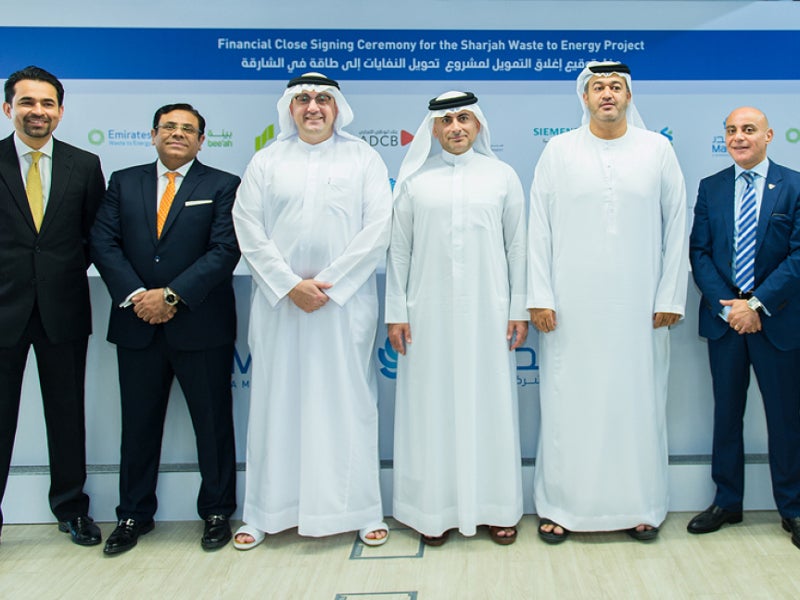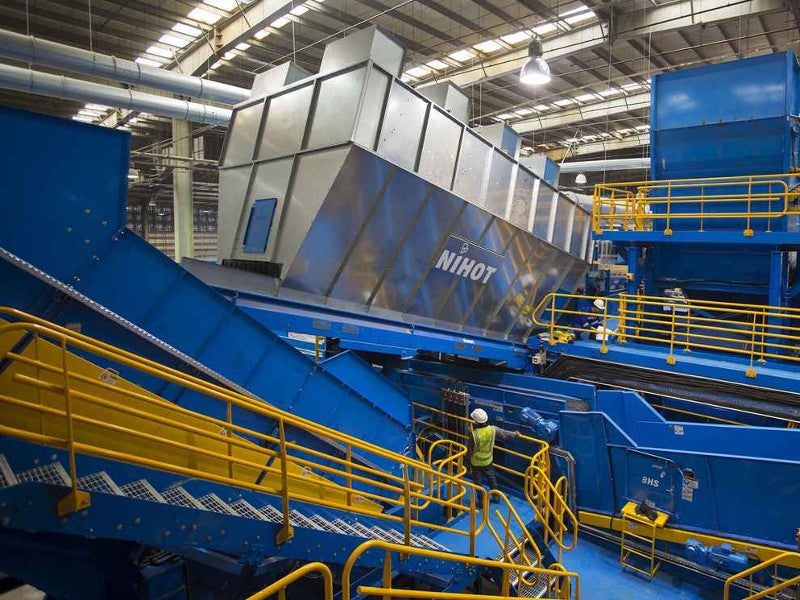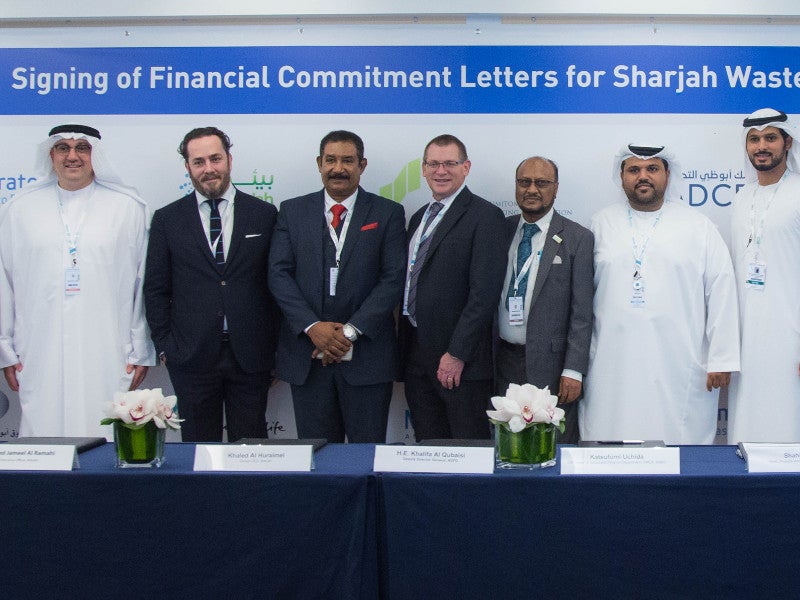The Sharjah waste-to-energy (WTE) project being developed in Sharjah will be the first waste-to-energy facility in the United Arab Emirates (UAE).
The facility will use up to 37.5 tonnes (t) of unrecyclable solid waste an hour to generate 30MW of electricity.
Emirates Waste to Energy Company, a 50:50 joint venture between BEEAH Group and Masdar, is developing the £172m ($220m) Sharjah waste-to-energy project. French industrial engineering contractor Constructions Industrielles de la Méditerranée (CNIM) has been appointed to design, build, and operate the facility.
Scheduled to commence operations in the third quarter of 2021, the Sharjah WTE plant is expected to supply electricity to 28,000 households, while diverting 300,000t of residual waste a year from UAE’s landfills, over an estimated operational life of 30 years.
The project is also estimated to offset approximately 450,000t of CO2 emissions and substitute the use of 45 million m³ of natural gas a year.
Sharjah waste-to-energy project background
Pre-feasibility studies of the project were completed in 2016, while the Emirates Waste to Energy joint venture between BEEAH Group and Masdar was established to develop the project in May 2017.
BEEAH Group is an integrated environmental and waste management company, which was established as a public private partnership (PPP) with the Sharjah City Municipality in 2007. It collects and processes approximately 2.3 million tonnes (Mt) of waste a year from one million Sharjah households.
Masdar is a renewable energy company, which is a wholly-owned subsidiary of state-owned Mubadala Investment Company.
The plant will help achieve Sharjah’s zero waste-to-landfill target as well as the UAE’s goal of diverting 75% of solid waste from landfills by 2021.
Sharjah waste-to-energy plant make-up
The Sharjah waste-to-energy project is being developed within the BEEAH’s waste management centre (WMC) in Al Saj’ah.
The plant will be deployed with the CNIM/Martin reverse acting grate for the combustion process. The bars of the reverse acting grate move in the opposite direction to the downward gravitational pull of the solid waste, which allows homogenous air distribution during combustion.
Waste products will be incinerated to produce heat up to 1,200°C, which will be recovered using an integrated heat recovery boiler. The steam produced by the boiler will be used to drive a steam turbine to generate electricity.
Flue gas generated in the process will be treated before being released into the atmosphere. The plant’s emissions levels will comply with the European Union’s (EU) environmental standards.
Support infrastructure facilities of the plant include air and water supply systems and an ash handling facility.
Power purchase agreement
The electricity generated by the plant will be sold to Sharjah Electricity and Water Authority (SEWA) under a long-term power purchase agreement (PPA) signed in May 2017.
Financing
A 20-year term loan of £127m ($162m) from a consortium of lenders including Abu Dhabi Fund for Development, Abu Dhabi Commercial Bank, Siemens Financial Services, Sumitomo Mitsui Banking Corporation, and Standard Chartered Bank was secured for the project in October 2018.
The project won the Thomson Reuters Project Finance International (PFI) Award for Clean Deal of the Year 2018 for the Middle East and Africa region.
BEEAH Group’s waste management centre details
BEEAH’s waste management centre at Al Saj’ah collects segregates, and recycles approximately 2.3Mt of municipal waste a year.
It already houses a 35MW gasification plant capable of processing approximately 160,000t of non-recyclable solid waste a year.
It also houses a material recovery facility (MRF), which was retrofitted with advanced recycling technology in 2018 to become one of the world’s biggest producers of recovered plastics.
Contractors involved
The design, build, and operate (DBO) contract for the Sharjah waste-to-energy plant was finalised with CNIM in January 2018.
Ramboll was appointed as the advisor for the planning and implementation of the project.






